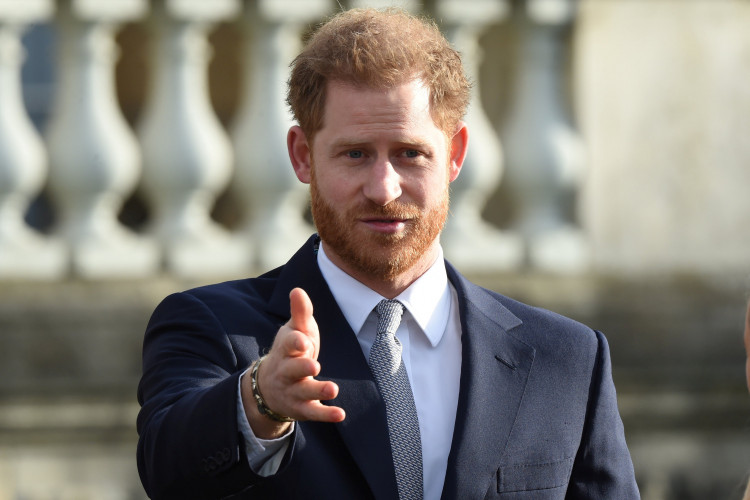Prince Harry finds himself in a "lose-lose" situation as a new development unfolds in his ongoing US visa legal battle, according to GB News' Digital Royal Editor Svar Nanan-Sen. The Duke of Sussex's visa documents have come under scrutiny after he admitted to taking recreational drugs in his memoir "Spare," prompting The Heritage Foundation, a conservative think tank, to demand that the royal's visa documents be made public.
In the second episode of the new podcast, "The Royal Record," Nanan-Sen and Royal Correspondent Cameron Walker discussed the intricacies of Prince Harry's legal battle. Walker explained, "In his memoir Spare, he admitted to taking marijuana, cocaine and psychedelic mushrooms. Under US immigration law, you cannot lie on your immigration record to say you have not done illegal substances. If you have done so, because that is under law, grounds for deportation. It is not necessarily grounds for deportation if you do publicly disclose that on the forms."
The Heritage Foundation's primary concern is whether Prince Harry lied on his immigration form or if he told the truth and was granted a visa by the US Department of Homeland Security, potentially receiving special treatment. Walker noted, "What The Heritage Foundation in Washington DC wants to know is, A. Did Harry lie on his immigration form? And therefore, what are the consequences for Harry? Or B. He told the truth on the immigration form and the US Department of Homeland Security, in other words, the Biden administration, granted him a visa anyway, in which case, on what grounds did they grant that visa? And did they give Harry special treatment? So that's the crux of the case."
The potential consequences for Prince Harry, should the court order his visa documents to be made public, are unclear. Former US President Donald Trump has weighed in on the matter, stating that "appropriate action will be taken" if he returns to office. However, Walker questioned the feasibility of such action, given the diplomatic implications of deporting the King's son and breaking up a young family.
Nanan-Sen added that an immigration lawyer had suggested the possibility of Prince Harry receiving a rare A1 head-of-state visa, which may have resulted in a lower security check. "For an A1 head-of-state visa, the security and background check questions are not the same as for most applicants. Crucially, they are only vetted for espionage, terrorism and activities that are contrary to US foreign policy, i.e. Prince Harry's drug use would not have been covered on the forms of his visa forms if he did receive an A1 head of state visa," Nanan-Sen explained.
The GB News royal correspondent concluded by acknowledging the uncertainty surrounding the type of visa Prince Harry possesses and the potential unfairness of the scrutiny he is facing compared to other celebrities who may have taken illegal substances before entering the US.
Royal commentator Richard Fitzwilliams told The Sun that the scenario could be a PR blow for the Prince, stating, "The fact of the matter is that it will be very embarrassing, or may be very embarrassing. Harry may have included drug use on his application form. If he hasn't, it will unquestionably make headlines, and that will not be beneficial so far as the Sussexes are concerned."
The Duke could face serious consequences, including deportation from the US, which would potentially force him to leave the plush £12m mansion in Montecito, California, that he shares with Meghan Markle and their two children, Prince Archie and Princess Lilibet.





